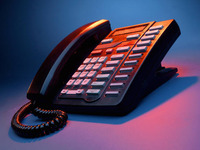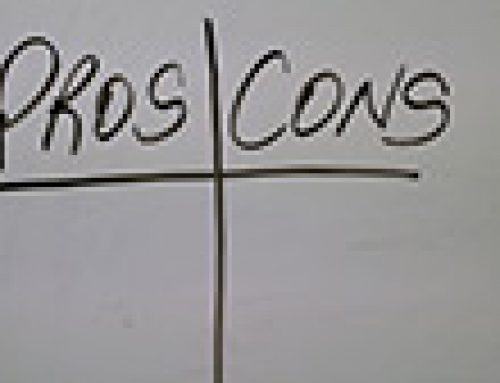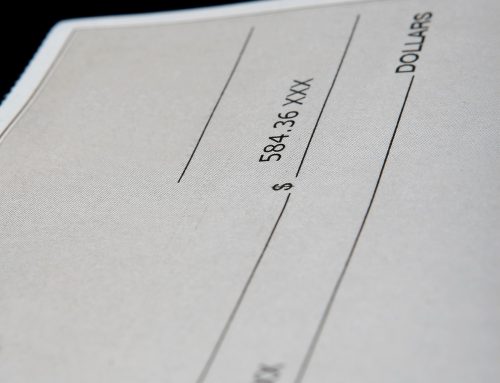Posted on Jun 26, 2015
Collection$ – Dialing for Dollar$
Part 1 of 2
In a perfect world, customers would pay their invoices without you ever having to pick up the phone and request payment.
Wow….that would be nice wouldn’t it?
Yup….but….back to reality, cause this isn’t a perfect world.
In the real world, some customers do pay without ever having to be contacted, while others….not so much!
That’s the group we’re going to talk about today.
The first step in successful collections begins with your credit application. Make sure you have all the information you’re going to need to collect the bucks owed to you. This includes the name of the person cutting the cheques along with their phone number, an email address for your invoices to go to, and a fax number. Having all of this information up front will mean less scrambling once an amount becomes due.
Most people think collections is just picking up a phone, dialing a number, and asking for money. It isn’t. It also involves customer service. You’ve worked hard to build your customer relationships; it’s imperative your collections department support all that hard work. Don’t get caught in the mindset of collections is just being an administrative job, it’s not.
Delivering good customer service means always being prepared. So, when your collector contacts your customer, they should have all the information pertaining to the past due amount at their fingertips. They need to be ready for whatever pop quiz the customer throws at them.
Let’s say your customer returned goods and is awaiting credit (a credit memo), your collector should know this before they place the collection call. Back in my collection days, one of the biggest challenges I used to face was credits not being issued. For the record, it wasn’t always at the fault of the sales department. Without boring you with the details I’ll simply say, the big kahuna wasn’t all that approachable when it came to customer returns. If goods were actually returned, getting the credit approved was such an intimidating process, they wouldn’t even get written up. This delayed the payment of countless invoices over the years. It was very frustrating for both collectors AND CUSTOMERS. Over time, our return policy changed, and this issue eventually went away. The moral of the story, make sure you have a customer friendly return policy that allows your sales staff to put the customer first.
Make it as easy as possible for your customer to give you their money. Allow them to pay by whatever means gets the money into your back account the fastest! If you accept credit cards, allow them to pay their account with their credit card…..when a cheque is ready, send a salesperson by to pick it up….make arrangements for direct deposits (an electronic transfer directly into your bank account)….get the picture?
When your collector calls and is told “The cheque’s in the mail!” They should be recording the name of the person they talked to, the date the cheque was mailed, and the cheque number. Experience always told me, if they could actually provide a cheque number, the cheque actually existed.
I’d always give cheques around a week from the date they were “mailed” to arrive. If they didn’t hit my desk after a week, I’d call back and talk to the same person. I’d verify the information; then allow another week for the cheque to arrive. If by then the cheque was still MIA, I’d request a stop-payment be put in place and a new cheque issued. If the customer was in driving distance, I’d make arrangements to have the replacement picked up once it was ready.
What do you do when you can’t get a hold of a customer? If you can’t get a hold of a live human and the customer isn’t too far away….grab some invoice copies and take a drive. Once on site you may actually find somebody to talk to. If that doesn’t work, try calling information to see if there’s a new phone number listed. Or, ask your sales staff to go through their notes; they may have a cell number written down that you don’t have.
If the signing officer isn’t in, the collector should make note of their return date, put a reminder on their calendar and call back at that time.
If they don’t have a copy of the invoice, their mailing address/email address should be verified and a copy faxed or emailed. A follow up a day or two later makes sure you’re in the next cheque run.
Keep detailed notes of all your calls. If something goes sideways it’s a lot easier to refer back to a hand/type written note than it is to rely on somebody’s memory. Further, I used to find when I had a “problem account”; the excuses seemed to repeat themselves over time. I always found that information quite valuable!
When a customer is having cash flow problems there isn’t a whole lot you can do! Review the options outlined in Dialing for Dollar$ Part 2, there’s a couple of suggestions outlined in this article that might help you out….and your bank account too!!
When an N.S.F. cheque is received try not to over react. I used to position things from a “the bank must have screwed up” standpoint; that tended to start the conversation off on the right foot!! And, make sure your customer reimburses you for the small fortune your bank will charge you to process the cheque.
When NSF cheques became the norm for a customer, they’d graduate to our C. O.D. only list. Customers on this list were only allowed to make purchases if they paid by certified cheque, cash, or credit card. When we’d close a customer account, we’d flag it in our computer system so our sales staff couldn’t release anything in error.
There will be times when despite your best efforts, a customer won’t pay. They may deny ever receiving an invoice copy, constantly bounce cheques, lie about payment etc. When you come across one of these customers it may be necessary to dig into your pocket and fork out some cash and send all important documents (invoice copies, past due notices) via registered mail or courier. At least that way you’ll have a signature of the person who signed for the envelope….no denying they didn’t get your paperwork then!
The odds of collecting a past due amount go down the longer it remains outstanding so, calling the largest and oldest amounts owing FIRST should always be priority one for collectors.
If you have multiple collectors on staff, create some healthy competition between them by keeping a call score card. This card will keep track of the number of collection calls they make each day. At the end of the month add up the numbers and buy the winner lunch. We tried this system in my other life and were surprised at how well it worked. For the record, this wasn’t something we put in place without talking to the staff first. We suggested it, they were all for it. They actually found the competition fun. And, by the way, it worked! Once this system was put in place the number of collection calls increased!
If you want to know how your customers really view your business….grab a coffee, head over to the collections department, and find out what your customers are telling them. It just might surprise you!
Happy Collections = A HappyBoss
Karen







